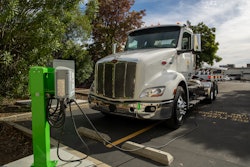There’s a big gap between diesel and all-electric, and that’s capability, lack of charging infrastructure, battery safety, battery lifecycle management and the list goes on.
Truckload Carriers Association Senior Vice President of Safety and Government Affairs David Heller believes that gap will become more apparent as more electric trucks hit the road this year.
“We can't even try out an electric vehicle in the long-haul trucking industry because it doesn't work,” Heller said. “I know of one carrier who has one and he can't use it long haul. He uses it for local pickup and deliveries because it just can't hold a charge for [long-haul].”
Heller believes more stories like this and others demonstrating the challenges of transitioning to zero-emission Class 8 will continue to emerge as the Biden Administration and massive investment firms like BlackRock continue to push companies to strive for increasingly difficult environmental, social and governance (ESG) goals.
“So 2023 is going to shake out in terms of real education and realistic viewpoints of what this looks like for the truckload segment of the industry because there's no [zero-emission] equipment out there that exists that can pacify the needs of this industry,” Heller said.
[Related: Tesla delivers 'most bad ass rig on the road' to Pepsi]
According to the California Energy Commission, which tracks sales of zero-emission medium- and heavy-duty commercial vehicles in the state, there were 113 Class 8 electric trucks working in California at the end of the second quarter last year, their most recent tally. All of these trucks were being used at the ports either as terminal tractors or for on-road drayage transport.










